|
|
|
|
Bruce Pascoe’s Dark Emu has been in the news again this week, with anthropologist Peter Sutton and archaeologist Keryn Walshe releasing their own book critiquing Pascoe’s work. In particular, they question Dark Emu’s central argument that pre-colonial Aboriginal people practised agriculture, suggesting Pascoe is dismissive of the achievements of hunter-gatherer societies.
But as Michael Westaway and Joshua Gorringe write today, contemporary archaeological research may hold the key to debates around Dark Emu. They report on a major research project, working with the Mithaka Aboriginal Corporation in the Channel Country in Central Australia, which seeks to test Pascoe’s hypothesis.
They are investigating Aboriginal settlement sites and pit dwelling huts and have found more than 140 quarries where rock was excavated to make seed grinding stones. Using sophisticated techniques, they are searching for evidence of villages, combing through ancient fireplaces and studying plant use.
Were First Australians farmers or hunter-gatherers? Contemporary archaeological research suggests it’s not a simple dichotomy, they write. But this multidisciplinary research, involving traditional owner knowledge, can create a richer, more nuanced understanding of pre-colonial Indigenous life.
And thanks to those of you who have generously donated to our annual reader campaign. It’s tax-deductible and supports independent, fact-based journalism.
|
Suzy Freeman-Greene
Section Editor: Arts + Culture
|

|
|
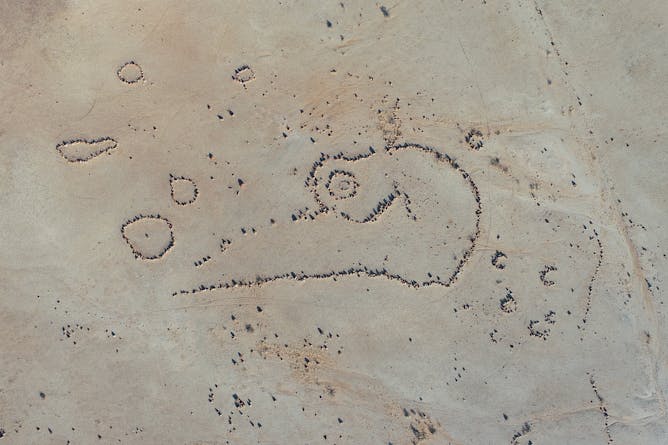
An aerial view of an Aboriginal stone arrangement in the Channel Country of Central Australia. Such arrangements may be associated with initiation ceremonies and exchange of marriage partners, as well as trade. The main structure is around 30 metres long.
Mithaka Aboriginal Corporation
Michael Westaway, The University of Queensland; Joshua Gorringe, Indigenous Knowledge
We have found 140 quarry sites, where rock was excavated to make seed grinding stones, in the Channel Country of Central Australia. It's part of a major project testing Bruce Pascoe's hypothesis.
|
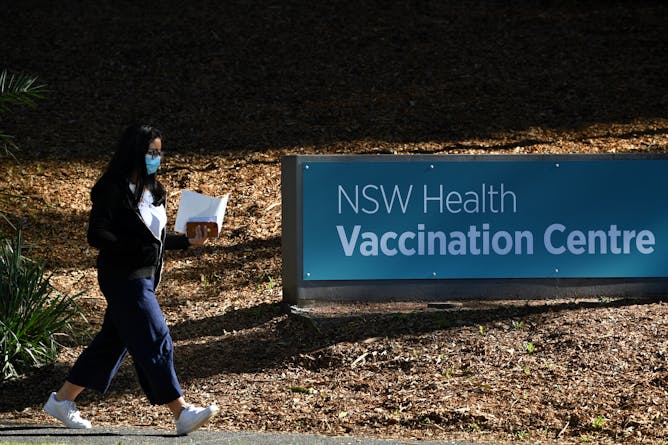
AAP/Joel Carrett
Paul Griffin, The University of Queensland
Experts are continually monitoring how well COVID vaccines are working, their side effects, and the amount of disease in the community. These factors can change, and advice will adapt accordingly.
|

Mick Tsikas/AAP
Michelle Grattan, University of Canberra
In reaching a policy for net zero by 2050, Scott Morrison will face conflicting internal and external pressures.
|
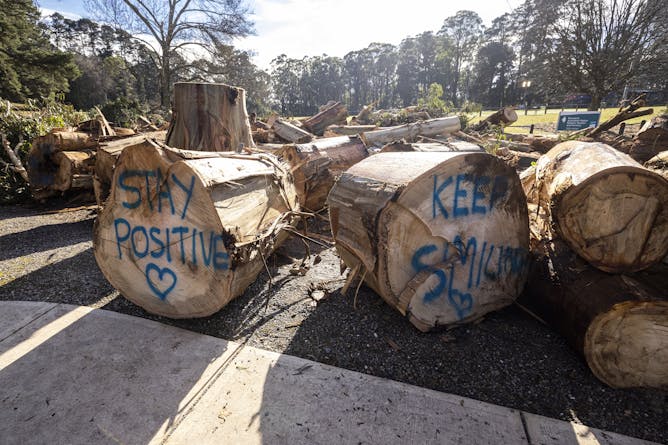
AAP Image/Daniel Pockett
Ian Wright, Western Sydney University
Three suburbs in Victoria have been warned against drinking tap water — even if they boil it first.
|

Jessica Hill/AP/AAP
Nathan Bartlett, University of Newcastle
It's OK to wait longer than three weeks between Pfizer doses, and this may even provide stronger protection. But this must be weighed against the risk of contracting COVID in the meantime.
|
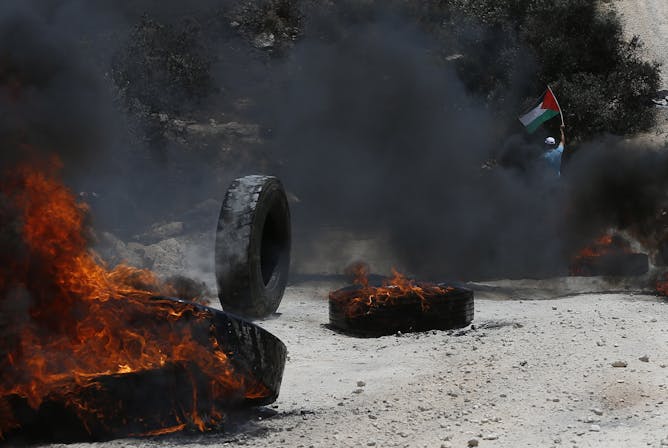
Alaa Badarneh/EPA/AAP
Dennis Altman, La Trobe University
Violence in Gaza has once again brought the Labor Party's conflicted position on Israel and Palestine to the fore.
|
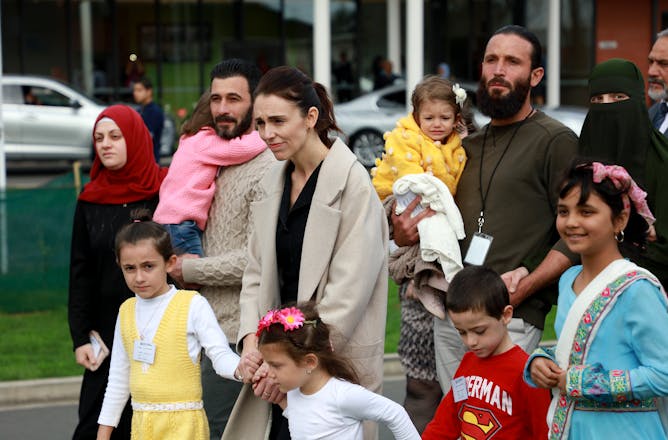
Prime Minister Jacinda Ardern marks World Refugee Day 2020 at the Mangere Refugee Resettlement Centre in Auckland.
GettyImages
Jay Marlowe, University of Auckland
World Refugee Day on June 20 is an opportunity for New Zealanders to reflect on what more could done to protect some of the world's most vulnerable people.
|
Business + Economy
|
-
John Buchanan, University of Sydney
The Fair Work Commission has shown it can still provide important economic leadership.
-
Richard Holden, UNSW
To drive living standards upward we need new technologies to relentlessly improve productivity.
-
Basil Sharp, University of Auckland
Moving New Zealanders rapidly into electric vehicles is a good idea, but success will still depend on a number of difficult to predict economic forces.
|
|
Education
|
-
Lynn Bosetti, University of British Columbia; Troy Heffernan, La Trobe University
These are challenging times for university leaders, and new research shows 'smart bullies' are making life even more difficult.
|
|
Cities
|
-
Salman Shooshtarian, RMIT University; Tayyab Maqsood, RMIT University
Construction and demolition creates more waste than any other sector, but much of it can be recycled. However, public resistance to setting up new plants stands in the way of a sustainable market.
|
|
Science + Technology
|
-
David Ernest McClelland, Australian National University; Robert Ward, Australian National University; Terry McRae, Australian National University
The world's biggest gravitational wave observatory is now probing the limits of quantum mechanics.
-
Stephen Poropat, Swinburne University of Technology; Adele Pentland, Swinburne University of Technology
A spectacular series of fossilised footprints from sauropod dinosaurs and other ancient animals opens a window onto life in northeast Australia 95 million years ago.
|
|
Environment + Energy
|
-
David Hall, Auckland University of Technology
An emissions trading scheme is New Zealand's main policy to tackle climate change. But to bring down emissions quickly enough, other policies will need to transform transport and agriculture.
|
|
Health + Medicine
|
-
C Raina MacIntyre, UNSW; Benjamin Veness, CQUniversity Australia; Michelle Ananda-Rajah, Monash University
Health workers have long called for better protections against COVID-19. Well fitting masks are now required when caring for COVID-19 patients. But the guidelines on ventilation miss the mark.
|
|
Politics + Society
|
-
Matthew Sussex, Crawford School of Public Policy, Australian National University
This could have been a feisty exchange between two adversaries. But the summit was a calm affair, with each side hoping their hostile relationship could be ratcheted down a notch or two.
-
Adrian Beaumont, The University of Melbourne
Despite sending Victorians into their fourth lockdown, the Andrews government retains a healthy lead in polling and is favoured to win the next election.
|
|
| |
Featured jobs
|

|
— North Ryde NSW, Australia
|

|
|
|
|
|
| |
| |
| |
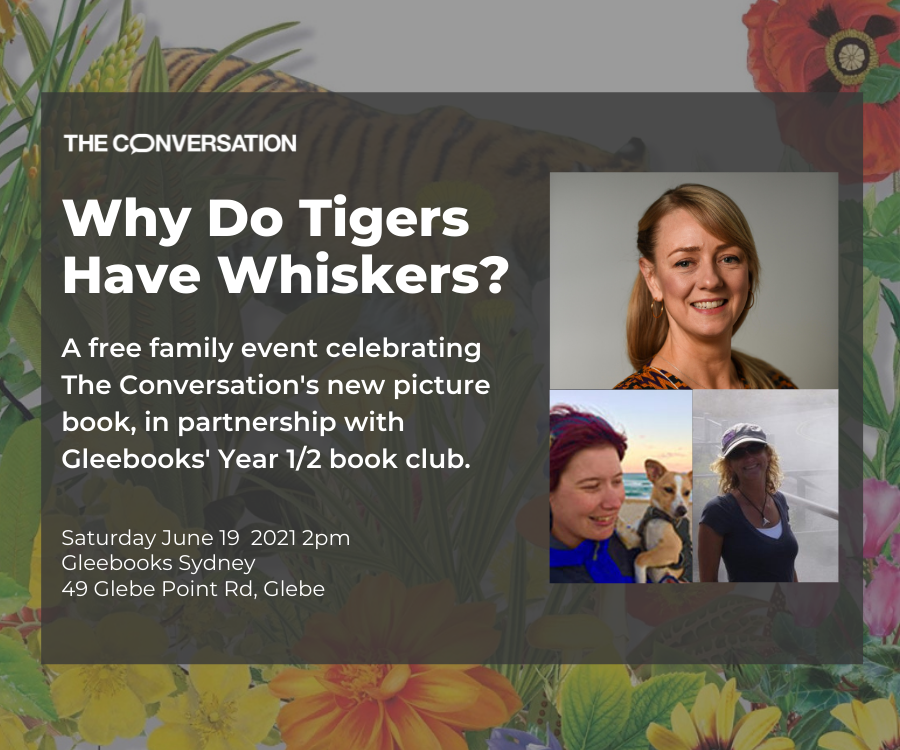
|
| |
| |
| |
Featured Events & Courses
|

|
49 Glebe Point Road, Glebe, New South Wales, 2037, Australia — The Conversation
|

|
191 Boundary St, West End, Queensland, 4101, Australia — The Conversation
|

|
Free online event, Queensland, Australia — The Conversation
|

|
Online course by BehaviourWorks Australia, Clayton, Victoria, 3800, Australia — Monash University
|
|
|
|
| |
| |
| |
| |
| |
|
|
|
|
|
|
|